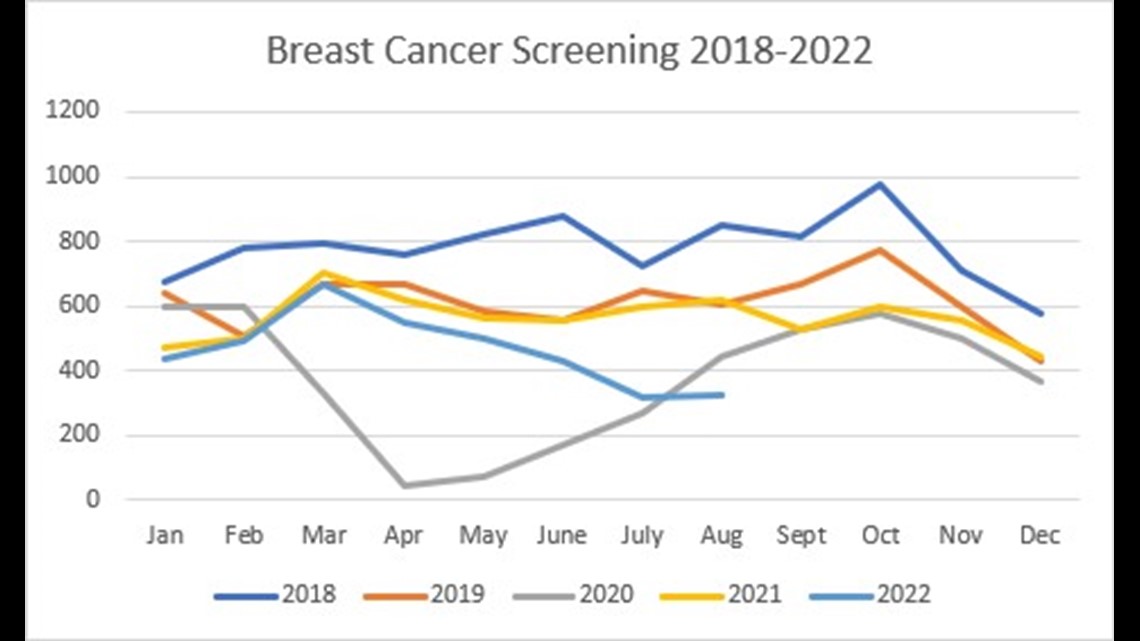MINNEAPOLIS, Minn — The COVID-19 pandemic put a lot of things on hold, including our health.
Breast cancer screenings were one of those things.
The National Cancer Institute estimates more than 9 million screenings for breast cancer did not happen in 2020 and doctors say they are still working to close the screening gap.
"We definitely saw a significant decrease in 2020," said Dr. Natasha Rueth, a surgical oncologist at Allina Health's Cancer Institute. "We shut down screening mammograms, women didn't have any choice, we shut down clinics, we even for a while had to shut down operating rooms. So there were women who suffered delays in surgical care as a result of the pandemic in 2020."
Dr. Rueth is just one of many health professionals working to make sure women get back on track with screenings.
"Fortunately, what we have seen in the recovery period since is that screening mammograms are back up to pre-pandemic numbers, so a lot of women are coming back in," said Rueth.
That's what they're seeing at Allina Health. The Minnesota Department of Health's SAGE program, which offers screenings free of charge to those who qualify, is seeing a similar trend.


The above chart from SAGE shows the drastic drop in screenings that took place at the beginning of the pandemic in 2020, followed by a slow recovery.
Dr. Rueth says although things are improving, not everyone who should be getting mammograms right now, is.
"One of the areas we really struggle with and I think we need to emphasize and focus, is that there are significant disparities in who has come back for mammograms and who got mammograms even pre-pandemic," said Rueth who adds that people in BIPOC communities and transgender individuals are often overlooked when it comes to breast screenings.
"Anyone with female breast tissue, you know, somebody who was born female or identifies as male needs to have their breasts screened for breast cancer," said Dr. Rueth. "That can be a really particularly challenging space for someone who identifies as male and may not be really physically connected to their breast tissue and might just forget about mammograms."
Dr. Rueth says Allina Health is working to fix that.
"There are a lot of mobile mammography screening events, we partner with local organizations like SAGE to offer free screening events, particularly within some of our communities."
Dr. Rueth recommends mammograms every year starting at age 40, unless you have a family history of breast cancer. Then you should talk with your doctor.
Watch more KARE11 Sunrise:
Watch the latest coverage from the KARE11 Sunrise in our YouTube playlist:

